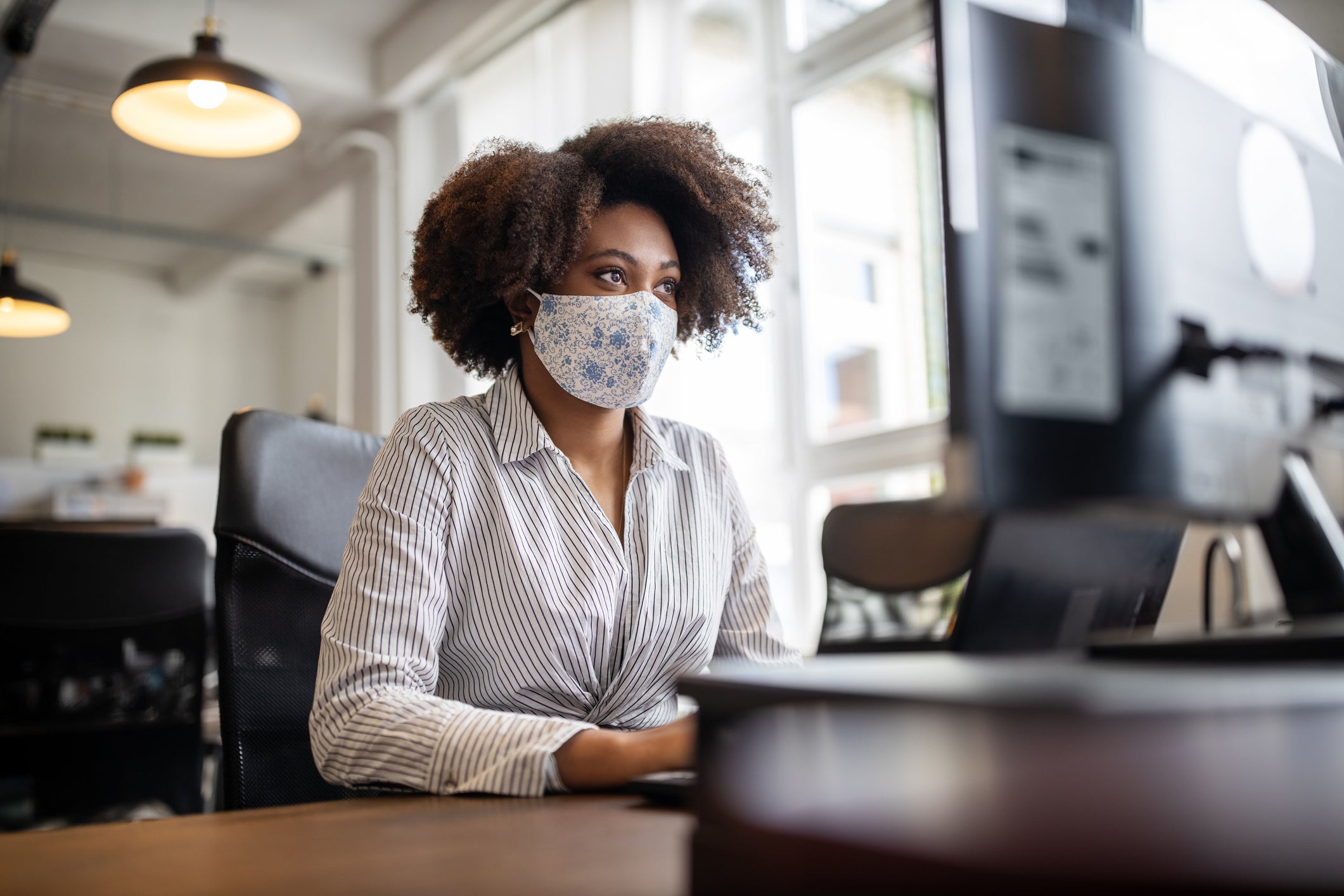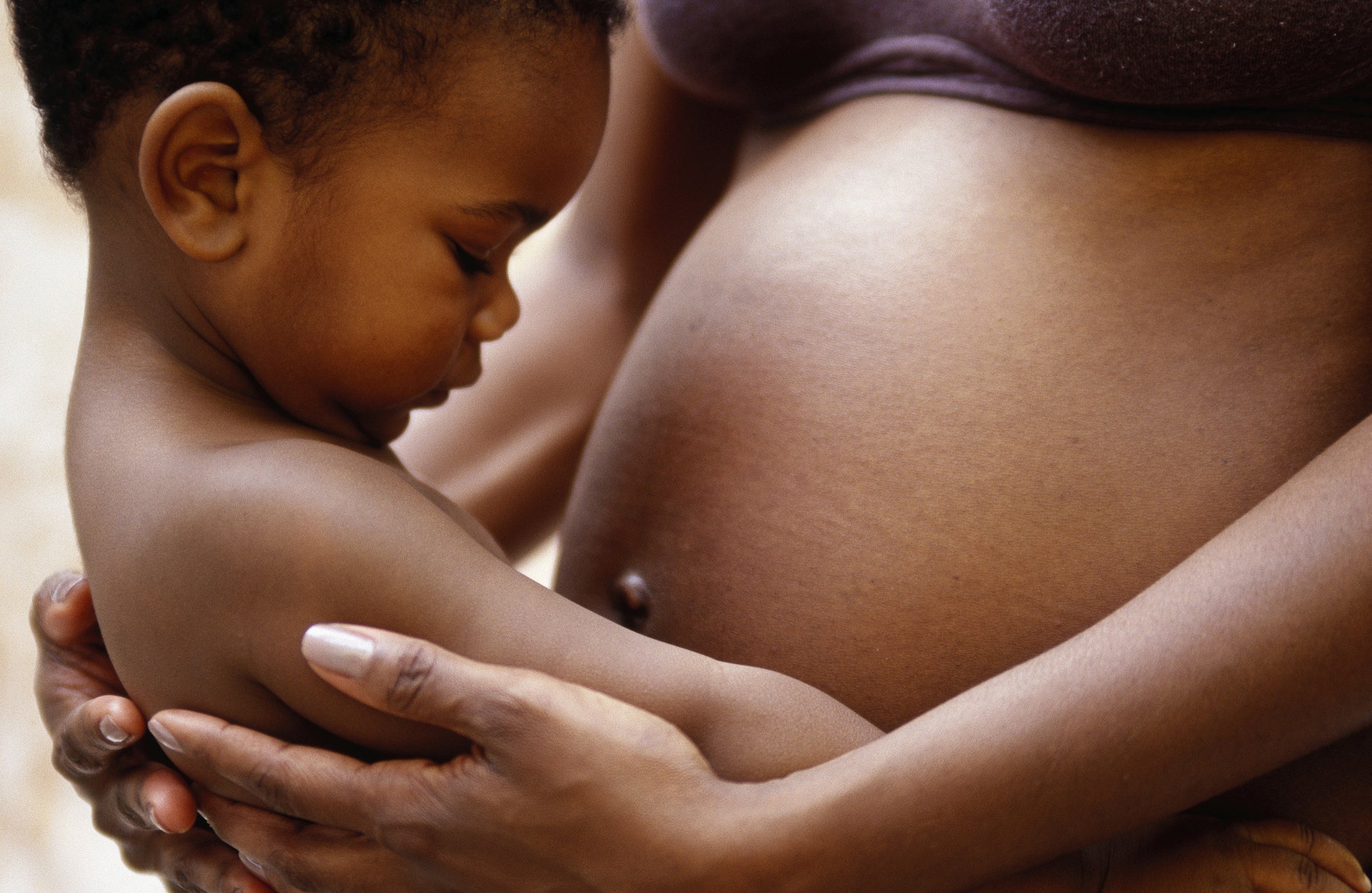Before COVID-19, Black women were already facing an ongoing public health crisis that has led to an alarmingly high rate of preventable, maternal deaths.
Black women are around 3 times more likely to die from pregnancy complications than non-Hispanic white women, and there is an increased likelihood of morbidity among Black women. COVID-19 threatens to exacerbate these disparities unless the pandemic response centers the needs of Black birthing people. The world is undertaking an unprecedented effort to develop a COVID-19 vaccine faster than any vaccine has ever been developed. But, as a recent report from the Center for American Progress outlined, the pandemic cannot be stopped unless measures to prevent and treat the coronavirus considers the health needs of everyone, including Black, pregnant people.
Unfortunately, the drug companies that have been awarded federal contracts to produce a COVID-19 vaccine thus far exclude pregnant people from clinical trials. Further, trials for a vaccine have also failed to recruit a diverse sample of participants—a pattern seen similarly reflected in clinical trials for therapeutics like Remdesivir.
The pandemic has exposed longstanding hurdles that Black women have had to navigate to access health care since the founding of this country. Barriers to health care resulting from stay-at-home orders and restrictions on non-essential care have limited already limited options for prenatal care. Hospital policies prohibiting companions in the delivery room leave Black women alone to give birth with no one to advocate for them – which can have dire consequences given multiple studies have shown providers ignore Black women’s pain more than others. Providers who serve communities of color were under-resourced long before the nation experienced a shortage in personal protective equipment and hospital beds. Anxiety around the disease, record-breaking job loss, and the killing of unarmed Black men and women is causing increased mental anguish in a health care system that is not prepared to provide care that meets the unique needs of Black people. And, the list goes on.
Based on the limited data we have, Black people make-up nearly 25 percent of confirmed cases despite being only 13 percent of the population, and alarmingly Black people are 2.5 times more likely to die from the disease compared to white people if they contract it. Further, new data from the Centers for Disease Control and Prevention (CDC) suggests Black pregnant women are disproportionately contracting COVID-19. According to the CDC, Black women account for around 22 percent of pregnant women who test positive for COVID-19,compared to only 15 percent of U.S. births in 2019. The CDC also suggested the disease could be more severe for pregnant people, with higher rates of hospitalization, admission to the intensive care unit, and receiving mechanical ventilation.
Better, more complete information about how the pandemic is impacting each community is necessary to create vaccines and therapies that work for everyone. For example, pregnancy has been shown to impact how the body metabolizes drugs. Additionally, a therapy that is effective for white women does not necessarily have the same effectiveness for Black women.
Relative to the share of women who contract conditions and illnesses, women are frequently underrepresented in clinical research. Additionally, studies have found inadequate enrollment of racial and ethnic minority groups in clinical trials. Further, pregnant women have historically been excluded from clinical trials out of concern over risks of experimental therapies and vaccines, but medical and scientific experts have now largely concluded that a blanket exclusion of this population does not eliminate risk to them; either they will take the vaccine out of the controlled setting or remain susceptible to the condition.
Therefore, care must be taken to ensure the needs of pregnant and postpartum people are considered in therapy and vaccine development, and there should be clear notice if the product is not safe and effective for some.
Thankfully, a new bill in Congress, the Maternal Health Pandemic Response Act, would take critical steps to ensure equitable vaccines and therapies for COVID-19. This legislation, introduced by Senator Elizabeth Warren and Representative Lauren Underwood, a co-chair of the Black Maternal Health Caucus, along with Senators Kamala Harris, Cory Booker, Kirsten Gillibrand, and Tina Smith, would require the CDC to collect more complete disaggregated data on COVID-19 and pregnancy, ensure vaccine and treatment development consider pregnant and postpartum people, and ensure maternity care during the pandemic is delivered in a nondiscriminatory manner.

Without equitable COVID-19 vaccines and therapies, the pandemic will last even longer, and the Black community will disproportionately suffer the health and economic consequences. This would bring new meaning to the phrase that many Black mothers have long proclaimed: when America catches a cold, Black America catches pneumonia.
Jamille Fields Allsbrook is the Director of Women’s Health and Rights at the Center for American Progress
—
ESSENCE is committed to bringing our audience the latest facts about COVID-19 (coronavirus). Our content team is closely monitoring the developing details surrounding the virus via official sources and health care experts, including the World Health Organization (WHO), the Centers for Disease Control and Prevention (CDC) and the Occupational Safety and Health Administration (OSHA). Please continue to refresh ESSENCE’s informational hub for updates on COVID-19, as well as for tips on taking care of yourselves, your families and your communities.

